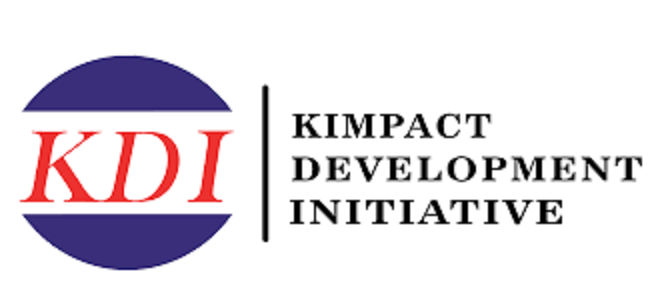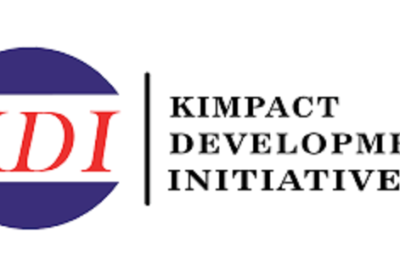- Raises concern about widespread cases of vote buying
A non-governmental organization, Kimpact Development Initiative (KDI), has called on Independent National Electoral Commission (INEC) to prioritize the adoption of automated systems for result collation and management.
In a post-election statement on the 2024 Edo State off-cycle governorship polls signed by its Executive Director, Bukola Idowu, KDI said this will enhance accuracy, minimize delays, and improve the transparency of the election results.
KDI noted that, using its Ballot Integrity Project (BIP) methodology, analysis showed a 6.04% inflation in the results declared by INEC.
“On Sunday, September 22, 2024, KDI completed an analysis of the data uploaded to the IReV, using the Ballot Integrity Project (BIP) methodology. With a margin of error of ±2%, our findings raise critical concerns regarding the integrity of the result management process in the election.
“Ideally, results should either decrease during the collation process—due to cancellations prompted by
issues like violence or BVAS bypasses—or remain consistent if no such cancellations occurred. However, we noticed an increase or addition in the number of votes in some collation centers. This discrepancy casts serious doubt on the transparency and credibility of the collation process.
“Moreover, while all 18 LGA Returning Officers and Electoral Officers (EOs) reported no cancellations during the state-level collation, our analysis shows that at least 22 polling units had Form EC40G uploaded on IReV, indicating disruptions or BVAS-related issues. The Permanent Voter Cards (PVCs) collected in these polling units exceed the margin of lead based on the IReV-collated results, raising concerns about the accuracy of the declared outcome. This indicates a high likelihood of a supplementary election in the 2024 Edo state governorship elections if PU results on IREV were consistent with
what was declared.
“Additionally, INEC stated that 604,132 voters were accredited, yielding 570,690 valid votes and 13,275 rejected ballots, resulting in a total of 583,965 votes cast. This leads to a discrepancy of 20,167 accredited voters whose votes were omitted from both the valid and rejected vote classifications. If no votes were cancelled, as reported by INEC returning officials from LGAs, this raises a pertinent question: Where are the 20,167 missing votes?,” the statement queried.
Regarding result management, KDI urged INEC to thoroughly examine the quality of training provided to the adhoc staff and to investigate any potential instances of sabotage within the process.
“An examination of Form EC8A on IREV reveals distinct instances of overvoting in more than 300 polling units across 14 local government areas. There are instances in which the number of voters exceeded the total number of accredited voters. We urge INEC to investigate whether these discrepancies were
intentional or merely arithmetic errors made by the polling officials,” the statement added.
KDI also raised concerns about the widespread occurrence of vote buying.
This, KDI said, was observed across all three senatorial districts, with inducements ranging from ₦1,000 to
₦10,000 in cash and material incentives, undermining the credibility of the election.
It noted that the impunity with which vote buying and selling took place during the Edo election is
alarming and poses a significant threat to the integrity of Nigeria’s democracy.
“On Election Day- 21st September, KDI deployed 431 trained observers across Edo’s 18 LGAs and 192 wards. These observers provided live updates on electoral incidents, the conduct of election officials, ballot integrity, and security-related issues. Their reports provide a comprehensive picture of the election environment.
“The EDDR ensured that data from our deployed observers was carefully reviewed, verified, and processed to offer immediate insights to election management bodies (EMBs) and stakeholders, facilitating prompt responses to emerging issues.
“Electoral stakeholders must intensify efforts to combat vote trading by closely collaborating with security agencies, civil society organizations, and election observers. Strict enforcement of electoral laws, especially those concerning vote trading, should be a priority, with a focus on prosecuting offenders to send a strong message that electoral malpractice will not be tolerated.
“While KDI does not intend to be alarmist, we strongly advocate that election stakeholders pay closer attention to data-driven insights. Reliable data, facts, and figures are crucial for effective planning and can help avert preventable issues if adequately considered and acted upon.”
Kimpact Development Initiative also mentioned that one of the most significant challenges noticed during the Edo governorship election was the late arrival of election materials, particularly in rural areas, which led to delays in the commencement of voting.
“These logistical setbacks were compounded by adverse weather conditions, such as rainfall in parts of Esan West, Esan Southeast, and Owan West, which disrupted the transportation of materials and affected voter turnout in some areas.
“To ensure the ballot security, it is essential to conduct a thorough audit of the ballot papers, particularly in areas impacted by adverse weather conditions. This audit will determine whether environmental factors, such as rain, contributed to the increased number of rejected votes. If issues are discovered, mitigation measures must be identified to safeguard future elections against similar risks.
“INEC must strengthen its contingency planning to account for logistical disruptions, including weather-related challenges, which have the potential to delay election processes. INEC should also develop comprehensive protocols to address unforeseen circumstances (force majeure), such as the heavy rain during the election. This will ensure that voting continues smoothly and election timelines are
adhered to, despite external factors.”
KDI said timely prosecution of individuals involved in electoral offenses is critical to maintaining the credibility of future elections.
“In the recently concluded Edo State election, incidents of ballot box snatching, vote buying, and thuggery were reported. While the Nigeria Police Force has arrested six individuals linked to these offenses, it is essential that they face prompt and fair prosecution. Failure to hold these offenders accountable will only embolden others to engage in similar acts of electoral violence and fraud.”


